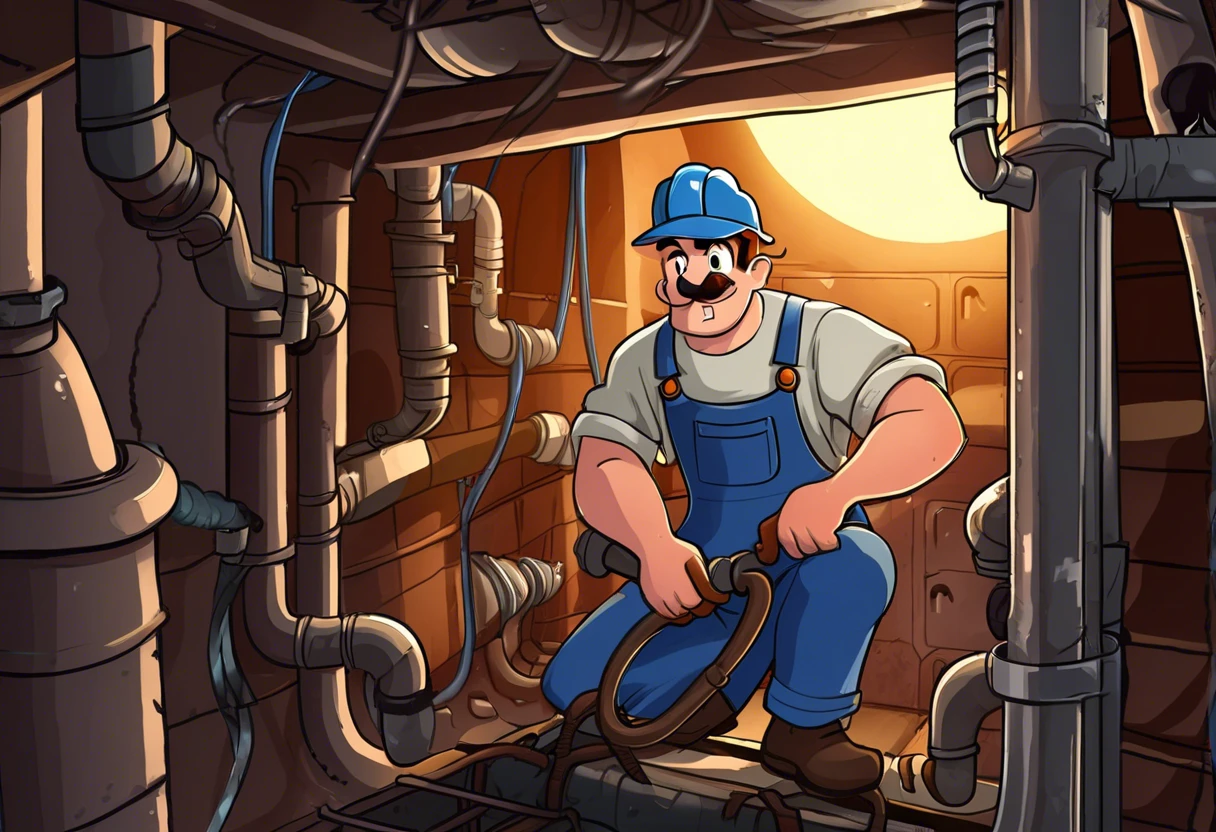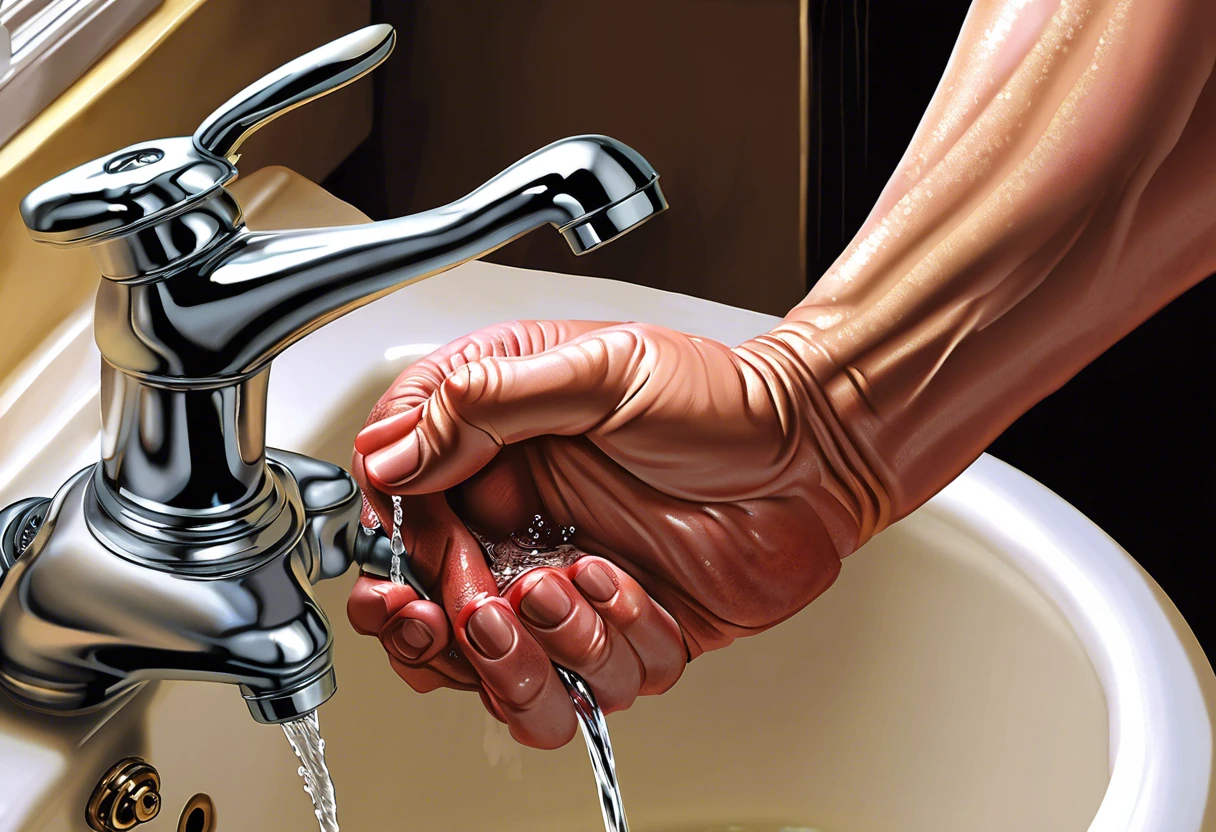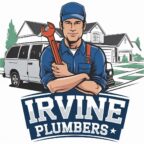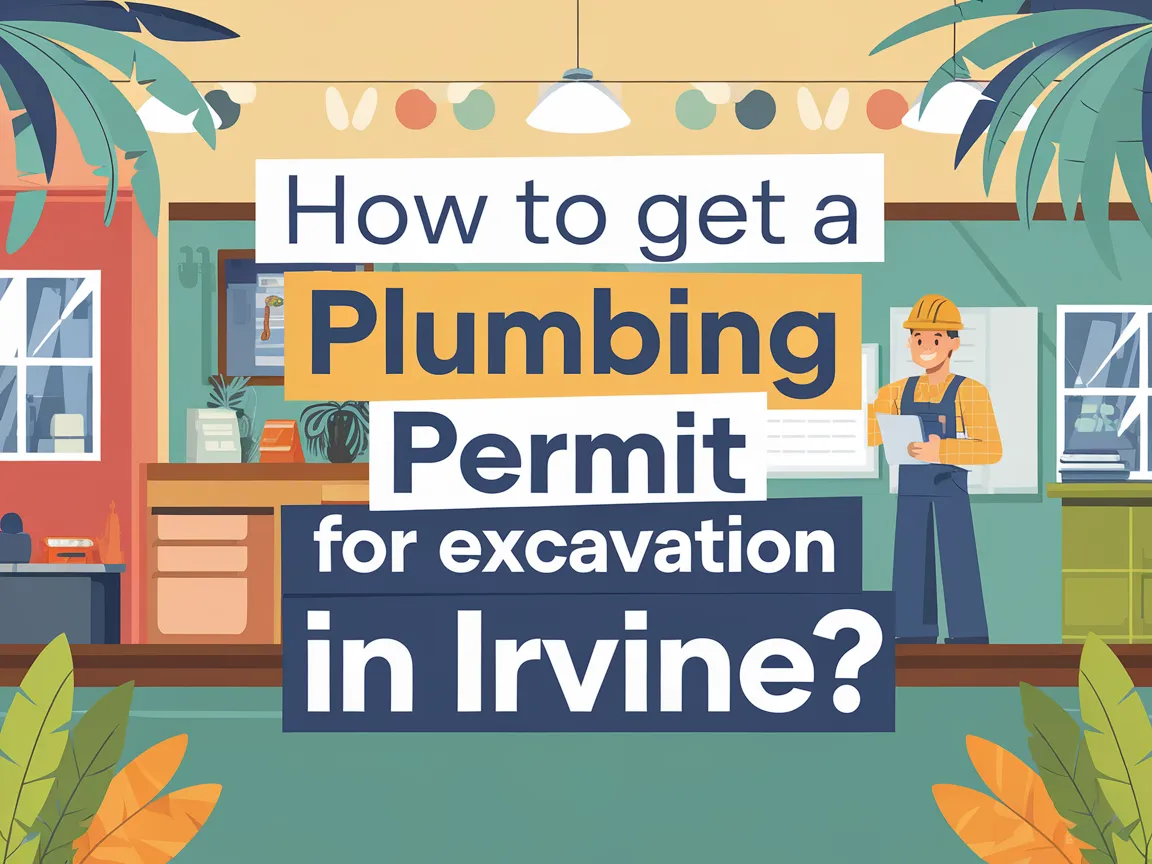Is Plumbing Hard on the Body?
Last Updated: February 27, 2025
Plumbing is fixing water pipes and other things that help water flow in and out of homes. It’s like being a water superhero, making sure everything works right!
When I’m explaining a repair, people often want to know, is plumbing hard on the body. From my first-hand experience, it can definitely take a toll, especially during long hours on the job. But don’t sweat it, I’m here to guide you through how to tackle it safely and comfortably.
This article’s going to cover what plumbing is, how to prep yourself, essential DIY plumbing techniques, tips to lessen strain, costs and impacts on your body, factors affecting physical strain, safety concerns, and when to call for help.
Table of Contents
- Is Plumbing Hard on the Body?
- What is ‘Plumbing’?
- Before You Start… Key Insights for Aspiring Plumbers
- How to Minimize Physical Strain in Plumbing Work
- What Are the Factors Affecting Physical Strain in Plumbing?
- Special Considerations for Body Safety in Plumbing Tasks
- Effects of Plumbing on Long-term Health
- Can Plumbing Impact Mental Wellness?
- Impact of Physical Strain on Mental Health
- Strategies for Safeguarding Your Body in Plumbing
- You, the Unlikely Plumbing Hero Of Irvine
- Final Words on the Physical Demands Of Plumbing
- Useful References
Is Plumbing Hard on the Body?
Yes, plumbing can be hard on the body. Plumbers often lift heavy tools and work in awkward positions for long hours. This leads to physical strain on the back, knees, and wrists. Proper technique and taking breaks can help minimize these effects. If you’re considering a career in this challenging trade, you might want to explore steps to become a professional plumber.
What is ‘Plumbing’?
Plumbing is the system that transports water, sewage, and gas throughout homes. It includes pipes, valves, fittings, and fixtures, all designed to move multiple gallons (3.785 Liters) of liquid daily. For instance, in a typical Cali home, plumbing might account for around 30% of the structural engineering soundness, so we’ve gotta ensure it’s in top shape. Plumbing codes, often set at 30 psi (206.84 Kpa), regulate water pressures just like our Irvine buildings are frequented by notable seasonal MVPs—fire. It’s crucial for any homeowner to recognize the necessity of maintenance; studies show that improper plumbing can lead to leaks, wasting almost 13,000 gallons (49,210 Liters) of water a year. When considering home plumbing infrastructure, homeowners should understand the specific pipe types used locally.
I had a friend call me when they needed help with a broken pipe real quick, proving plumbing emergencies have sparked countless fires of fury in obstructions. Transitioning back to whether plumbing holds tough on the body isn’t as clear-cut. There are tools and tricks (PASF, Which Stands for Pipe and Sealant Fitting) aiding those on the frontline, also used in remote setups to curb potential injuries. With neck sprains and back problems prevalent, about 4 in 10 plumbers report these injuries annually; taking care, embracing tech, and easing hazards all ring true in combatting issues. When managing complex plumbing systems, understanding proper roof vent installation techniques becomes crucial for preventing potential structural complications.
Before You Start… Key Insights for Aspiring Plumbers
What do you need to prepare for the physically demanding journey of being a plumber? Here’s a quick rundown.
- Work boots: You need sturdy work boots like Timberland PRO 6-inch. They provide support and help prevent injuries while you jump into the thick of things.
- Gloves: With nitrile (Synthetic Rubber) gloves, such as SHOWA 377, your hands stay protected from harsh chemicals and grime during tough situations.
- Tool belt: Opt for the DeWalt DG5617. Having your gear, like wrenches and pliers, hands-free means smoother navigation in tight spaces—trust me, it saves time!
- Knee pads: Wearing ExoFit NXT knee pads ensures your knees are cushioned while you’re scrunched on the floor dealing with pipes. Nobody wants to endure painful joints, right?
That covers essential insights for aspiring plumbers. Let’s now take a look at ways to reduce physical strain in plumbing work.
Also See: How Much Does It Cost to Rent a Plumbing Snake in Irvine?

How to Minimize Physical Strain in Plumbing Work
Now, let’s cover steps to ensure plumbing work doesn’t wear you down.
-
Assess Your Physical Condition
Before diving into any plumbing job, check your fitness level. As someone who’s been knee-deep in plumbing for years, I know that keeping in shape can really help reduce burnout. Professional plumbers often overlook the physical demands of their work, but maintaining good physical condition is crucial for preventing strain during complex plumbing tasks.
Consider getting a physical check-up and be mindful of any pre-existing conditions. With a hands-on job like plumbing, being fit can make a huge difference—it can wear you thin if your physique isn’t solid. Proper equipment selection, including specialized reducer fittings for plumbing systems, can also help reduce physical strain during complex installations.
-
Use Proper Lifting Techniques
Always bend your knees and lift with your legs instead of your back to avoid strain and possible injury. Try to lift no more than what’s comfortable; typically, that’s under 50 pounds (23 Kg) for easier maneuvering.
Clear the area beforehand and use both hands to ensure the weight is evenly distributed. This is especially important when dealing with heavier items like water heaters.
-
Incorporate Ergonomic Tools
Use tools designed to reduce strain and provide a better grip. Items like rifled pliers and offset pliers help a lot, making the job easier on your hands.
Invest in ergonomic designs—not just for pliers but also for other tools, like A/C work hats with ventilated sides; those matter. You’ll be amazed at how much less tired your hands feel!
-
Take Regular Breaks
Schedule short breaks to recharge your body and mind—about every hour would be ideal. After leaning under sinks or twisting your back, four to five minutes to stretch or sip water can keep fatigue at bay. Plumbers often encounter unique challenges with underground infrastructure that can impact their physical strain, such as tree roots damaging plumbing systems.
Use break time to clear your mind too—take deep breaths. It’s surprising how revitalized you feel after just a few moments of mindfulness.
Pro Tip: Treat your work like a sport; stay hydrated, and your body will thank you later!
We covered ways to reduce physical strain in plumbing work. We will now cover the factors influencing physical strain in plumbing.
What Are the Factors Affecting Physical Strain in Plumbing?
So, what factors can impact the physical toll of plumbing work?
-
Heavy Lifting: Frequently lifting heavy materials, like pipes and fixtures, can wear out your back and joints.
-
Repetitive Mechanics: Regularly performing the same motion, like tightening or loosening fittings, can lead to chronic soreness.
-
Poor Posture: Maintaining awkward positions while working under sinks can strain your neck and lower back.
-
Work Environment: Tight and confined spaces, often found at job sites in Irvine, can increase the risk of injury.
You should now have a good understanding of the factors impacting physical strain in plumbing. In the next part, we’ll discuss safety measures for plumbing tasks.
Special Considerations for Body Safety in Plumbing Tasks
This section highlights some unique factors to consider for body safety while plumbing in Irvine, CA.
- Proper Lifting Techniques: Always squat and lift with your legs. This helps prevent back strain, especially when lifting pipes weighing over 20 lbs (9 Kg).
- Hydration: Plumbing work can get messy (And You’ll Definitely Sweat). Aim for at least 2 liters (0.53 Gallons) of water a day, especially during those hot days.
- Ergonomics: Use tools designed to reduce the risk of repetitive stress injuries, like flex-head wrenches (135-degree Range). Tools with comfortable grips can keep your hands from cramping.
- Knee Protection: Always kneel on soft mats around job sites since your knees can take a beating when bending down for long stretches. Trust me, even just 20 minutes on hard concrete can turn you into a grumpy person!
- Noise Protection: If you’re around loud tools (Like Demo Hammers), consider hearing protection rated for 85 dB (Decibels) or more—especially important for those marina nights in Coastal OC.
We have now covered special considerations for body safety in plumbing tasks. The next section discusses the effects of plumbing on long-term health.

Effects of Plumbing on Long-term Health
In addition to immediate physical demands, plumbing can have long-term effects on your health.
- Musculoskeletal Disorders: These are common among plumbers due to repetitive motion and heavy lifting. Conditions like carpal tunnel syndrome or chronic back pain could develop over time.
- Joint Issues: Kneeling and crouching for hours puts stress on your knees and hips, contributing to arthritis later in life.
- Hearing Loss: Continuous exposure to loud noises can lead to long-term hearing issues, especially when using power tools without proper protection.
- Respiratory Problems: Working around old pipes, mold, or chemicals can lead to chronic respiratory issues unless you take proper precautions.
Can Plumbing Impact Mental Wellness?
It’s not just the physical part; plumbing also can affect your mental well-being.
Stress and Mental Fatigue in Plumbing
While fixing pipes and leaks is crucial, the constant pressure can take a toll. Here are some ways plumbing affects mental health:
- Pressure to Perform: Meeting strict deadlines can bring about significant stress, especially when dealing with customer expectations in busy areas like Irvine.
- Isolation: Working alone on a plumbing job can lead to feelings of loneliness, which can impact your mood over time.
- Problem-Solving Stress: The need for on-the-spot problem-solving can wear you down. Whether it’s fixing a leak or dealing with clogged drains, it requires focus and can feel overwhelming.
Combatting Mental Fatigue
Here are some useful tips to keep your mind sharp and stress levels in check:
- Connect with Colleagues: Don’t hesitate to reach out to a fellow plumber. Discussing challenges can help alleviate some of the pressure you may feel.
- Mindfulness Practices: Incorporate simple mindfulness strategies, like deep breathing or short meditation breaks before or after jobs, to give your mind a breather.
- Balanced Work Schedule: Aim for a manageable pace. Don’t overload your schedule; it’s okay to say no if you feel overwhelmed.
Impact of Physical Strain on Mental Health
Physical strain from plumbing can lead to mental fatigue. Let’s dive into how this all connects:
| Physical Issue | Potential Mental Impact |
|---|---|
| Chronic Pain | Increases irritability and can lead to anxiety. |
| Fatigue | Exhaustion can lead to decreased motivation. |
| Injuries | Fear of re-injury may create mental blocks during work. |
| Stress from Long Hours | Increased chances of burnout and mental health issues. |
Addressing both physical and mental strain is essential for a rewarding plumbing career. Remember, it’s about the balance between your body and mind—keeping both in check ensures you’re not just surviving but thriving in your plumbing journey in sunny Irvine! When exploring technical terminology like CTS in plumbing systems, you’ll enhance your professional knowledge.
Strategies for Safeguarding Your Body in Plumbing
There are various strategies you can implement to protect your body over your plumbing career.
| Strategy | Description | Benefits |
|---|---|---|
| Regular Stretching and Exercise | Incorporate stretching into your routine, focusing on back, wrist, and leg muscles. | Reduces stiffness and increases flexibility. |
| Posture Training | Learn proper posture techniques while lifting and working. | Helps prevent back strain and injuries. |
| Ergonomic Workstations | Set up workspace tools that reduce strain (e.g., adjustable tool stands) | Makes work easier on the body. |
| Regular Health Check-ups | Get regular check-ups focusing on musculoskeletal health. | Early detection of possible issues can lead to better outcomes. |
You, the Unlikely Plumbing Hero Of Irvine
Ever found yourself knee-deep in a plumbing conundrum, right here in Irvine, CA? Literally, it’s a whole journey! But don’t worry, I’ve been through it plenty of times.
Take that time when the OC heatwave dried up everything, and my showerhead felt like it was coughing rather than raining. Just when I thought I’d have to take a cold shower in this heat, I found the culprit—a clogged aerator. A quick twist and rinse, and I was back in business!
Let’s be real for a sec: plumbing problems can rear their ugly heads at the most inconvenient times. You know, like when your sink’s slow draining after you’ve eaten a heaping of carne asada fries? It’s like, “Why, universe?” But perhaps we can get closer to solving that annoyance right now. Some drainage issues might stem from complex plumbing system interactions that could require professional assessment of potential cross-connection complications.
If you ever face a clogged sink, here’s a two-minute fix. Grab a plunger and make sure it’s got a good seal over the drain. Give it a solid couple of pumps and—boom—often, there’s your solution. It’s literally that quick! But if that doesn’t work, you might want to reach for a drain snake rental options. Trust me, they can save you tons compared to hiring a plumber.
Let’s chat about those pesky leaks! Yeah, I know… finding a water stain on your ceiling is about as fun as stepping on a Lego. But don’t panic! Check under your sinks first. Look for wet spots. A bit of tape or a fresh washer might just do the trick until you call in the pros.
I’ve done my fair share of plumbing gigs in the area, and I can tell you—there’s a difference between small fix-it jobs and the big ones. If it’s something major like repiping or installing a new water heater, you might be better off calling in someone like me. It could save you time and headaches later. When you’re ready to secure professional plumbing work, navigating plumbing contract opportunities can help streamline your project planning.
And if you’re wondering about costs, well, in Irvine, a good plumber will typically charge between $80 to $150 an hour, depending on the job. Just think of it as an investment in peace of mind! And with the other stuff we’ve got going on in this beautiful city, who needs additional stress? When considering long-term plumbing solutions, homeowners should explore PVC pipe durability in Irvine.
So the next time you face a plumbing hiccup, remember: you’re not alone. I’m just a call away, ready to help a fellow homeowner right here in the vibrant heart of Irvine. Let’s keep your home sweet home running smooth! If you’re considering expanding your skills, you might want to explore starting a multi-trade business.
Final Words on the Physical Demands Of Plumbing
Phew, that’s a lot to digest. We covered the physical demands of plumbing, ways to minimize strain, special considerations for body safety, factors affecting physical strain, and when to seek professional help.
So, is plumbing physically demanding on the body? In simple terms, yes, it can be, but with the right approach and awareness, it’s manageable. Feel free to reach out if you have more questions—I’m always happy to share what I’ve learned over the years.
For further insights and resources, visit Irvine Plumbers to discover valuable techniques, tips, and best practices.
Useful References
- Kardon, R., Hansen, D., & Casey, M. (2015). Code Check Plumbing: A Field Guide to the Plumbing Codes. Taunton Press.
- Is Plumbing Hard on the Body? | Pros and Cons – TealPot


